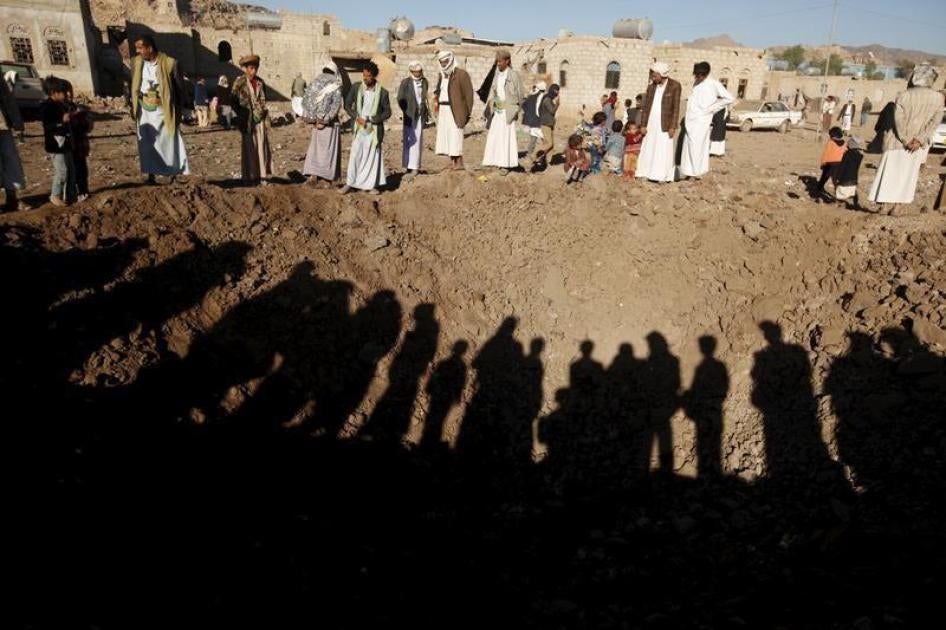Over the past 16 months, I have made multiple trips to Yemen to document the devastating, ongoing war where fighters on the ground and the Saudi Arabia-led coalition from the air have committed war crimes and other serious violations of the laws of war.
Human Rights Watch and Amnesty International have together documented more than 69 unlawful coalition air strikes that killed more than 900 civilians, plus another 19 attacks using internationally banned cluster munitions.
After each of these trips, I have flown to Washington DC, London, Paris, Brussels, Geneva, and other capitals to push policymakers to urge Saudi Arabia's allies to help stop the abuses.
Of all these meetings, the most frustrating have been those with UK officials. In August last year, after presenting a new Human Rights Watch report that documented 12 unlawful air strikes that killed at least 59 civilians in Yemen, diplomats from the Foreign and Commonwealth Office (FCO) told me that they had read our report with interest, but their analysis differed.
Foreign Office officials had looked into each of the incidents we had documented, they said, and in their view the Saudi-led coalition had not committed a single laws of war violation since entering the conflict in March that year.
British officials saying they could not confirm our findings would be one thing – their embassy in Sanaa, Yemen's capital, is closed, all their citizens other than a few aid workers had been evacuated, and monitoring events on the ground is extremely difficult.
But FCO officials went much further, and said they had assessed the same incidents we had researched and found not a single violation. This was astounding, given the extensive evidence of violations that we, the United Nations, other organisations and the media have documented.
Since then, the evidence of unlawful coalition attacks has increased, as has information on the coalition's use of UK bombs and cluster munitions, including weaponry transferred since the war began. The coalition's attacks have killed civilians in homes, markets, hospitals, schools, businesses, and mosques.
Only last week did the Foreign Office issue six corrections to ministerial statements made in parliament which asserted that the Saudi-led coalition was not violating the laws of war in Yemen. Now, instead of claiming "there has not been a breach of IHL [international humanitarian law] by the coalition", it claims much more modestly: "[We] have not assessed that there has been a breach of IHL by the coalition."
The idea that the Foreign Office has not reached a conclusion on the matter is hard to square with the confident assessment of FCO officials who spoke with us in 2015, claiming that there were no violations.
These corrections also fly in the face of testimony government officials gave to the international development select committee earlier this year. As the committee chairman, Stephen Twigg MP, noted: "Only last week in its response to our report, the government insisted that, with regard to the information available to them, they have assessed that the key test on the risk of violations of IHL had not been met." In a letter to the new foreign secretary, Boris Johnson, Mr Twigg has now urged the FCO to correct the evidence it submitted to the committee.
Based on my conversations with British officials over the past year and a half, it's hard to avoid the conclusion that this is a face-saving exercise to erase the indefensible position that the UK government held while their Saudi allies were using British-manufactured munitions indiscriminately, without adequate regard for civilian life and property, contributing to the deaths of more than 3,500 civilians.
These corrections are a step forward, but they are a long way from the truth. UK officials no longer claim that the coalition it helps to arm has not violated the laws of war, but they still refuse to acknowledge that it has. The British government should now go further, and take the steps necessary to push the coalition to stop its terrible abuses, and ensure those who committed the violations are brought to justice.










